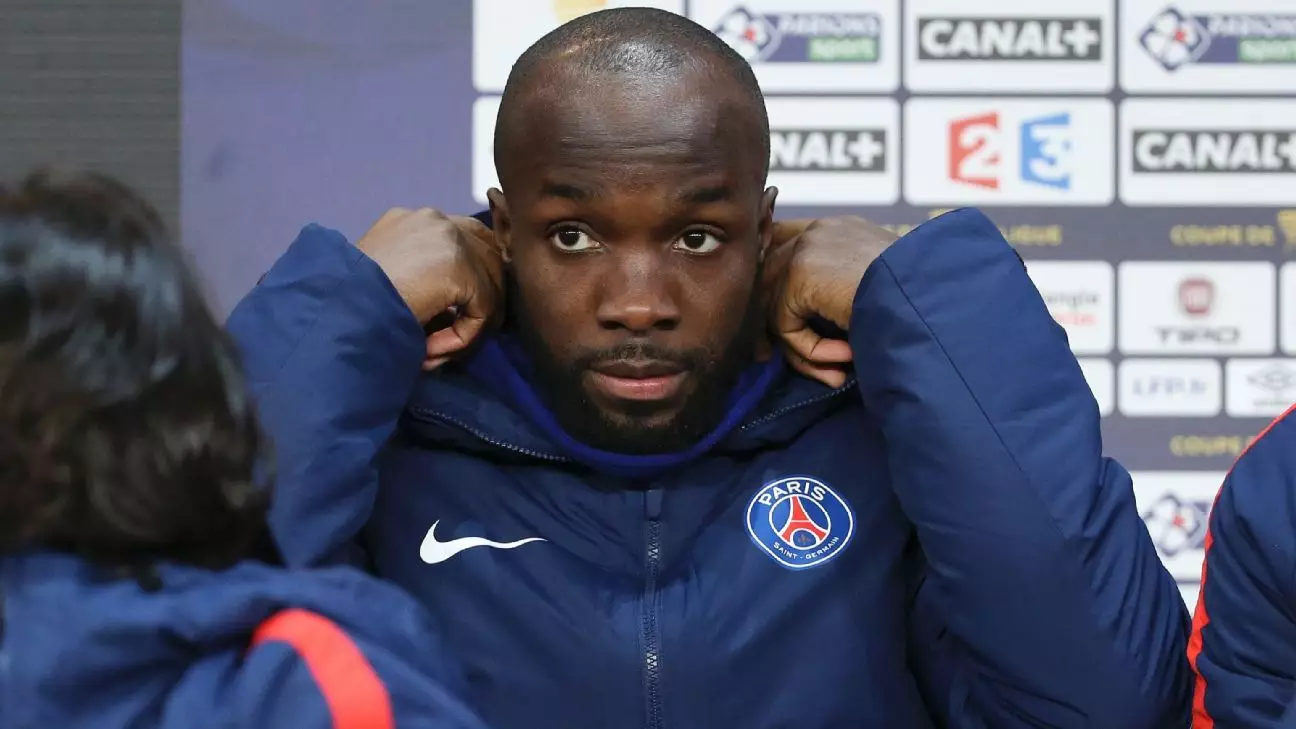Lassana Diarra’s recent legal victory marks a groundbreaking turning point in the world of professional football, not merely for him but for countless players who feel trapped by outdated and arguably exploitative transfer regulations. For years, players have been pawns in a system that often prioritizes club revenues over their personal and professional freedoms. Diarra’s refusal to accept this status quo and his willingness to confront powerful institutions exemplifies a shift toward players’ rights being taken seriously, a challenge that resonates well beyond his individual case.
His claim for €65 million in damages underscores how profoundly he believes that FIFA’s rules have unlawfully restricted talent mobility and hindered fair competition within the European Union’s legal framework. The core issue here is whether football’s governing body is operating within legal boundaries or simply wielding its authority unchecked. Diarra’s case exposes the fragility of FIFA’s position and raises questions about its authority to impose rules that may contravene European labor laws. It also highlights a broader legal philosophy: how much power should a sports federation wield over individuals, especially when their ability to ply their trade freely is at stake?
The significance of this legal challenge is amplified by the fact that it is not an isolated incident, but part of a wider movement advocating for players’ autonomy. The support from FIFPRO, the global players’ union, signifies a collective push to reform systemic issues that have long persisted. This isn’t merely a personal vendetta but a strike against structural inequalities embedded within global football governance. Diarra’s willingness to pursue legal action, even at the risk of marginalization by powerful football institutions, sparks a crucial debate on whether the sport’s current regulatory framework is compatible with principles of free competition and fair employment law.
Legal Loopholes and the Fight for Integrity
The case’s roots trace back to a complex web of contractual disputes, transfer restrictions, and the influence of international governing bodies. When Lokomotiv Moscow terminated Diarra’s contract, FIFA’s transfer rules effectively placed him at the mercy of clubs’ and federations’ financial interests, often at the expense of player welfare. The rules mandated that players and new clubs could be held liable for compensation to previous clubs, with little regard for the reasons behind contract terminations—highlighting systemic issues within the transfer ecosystem.
The landmark ruling from the European Court of Justice exposes how these regulations suppress player mobility and stifle competition between clubs. It reveals that FIFA’s rules operate in a space that arguably contravenes EU laws on labor and competition—principles designed to promote fair play not just on the pitch but within the labor market altogether. The court’s recognition of this conflict represents a monumental step toward aligning football regulations with broader legal standards. For players like Diarra, this is more than a legal victory—it’s a stand for justice and professional dignity.
However, FIFA’s response signals a cautious approach, emphasizing ongoing efforts to amend regulations to comply with EU law. This indicates recognition that the current system is flawed but also underscores how resistant authorities are to swift reform. The organization’s pronouncement of cooperation should be viewed skeptically; real change requires dismantling entrenched interests that have benefited from the status quo for decades. Diarra’s legal initiative is a direct challenge to that inertia.
Choosing to Fight: Personal Courage as a Catalyst for Change
Diarra’s decision to take on FIFA is characterized by courage and a deep conviction that the system needs change. His statement reflects a desire to stand up not just for himself but for lesser-known players who lack the resources to challenge powerful governing bodies. This moral stance emphasizes that justice isn’t only achieved through court rulings but through the broader movement to reform an industry marred by inequality and imbalance.
His case also underscores the role of legal activism within sports — a realm traditionally dominated by agreements, pragmatic negotiations, and behind-the-scenes influence. By publicly challenging FIFA, Diarra has sparked a conversation about fairness and reform that could reshape how players are treated worldwide. The fact that his legal team is pursuing a class-action suit indicates an understanding that systemic change is necessary and that individual cases are just the beginning.
While FIFA remains largely silent on the specifics of the ongoing legal battles, the implications are clear: the sport must evolve if it is to remain truly fair and competitive. In a world increasingly governed by accountability and transparency, Diarra’s stand represents a crucial push toward aligning football with contemporary legal and ethical standards. Whether or not he wins the full €65 million, his ongoing fight is already serving as a powerful catalyst for change within the sport’s often opaque regulatory landscape.

